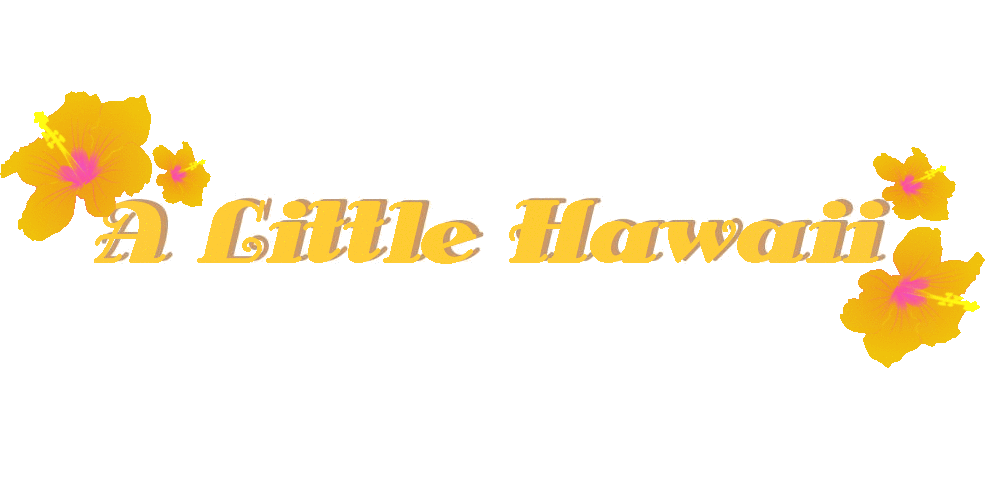lifestyle
After living in Missouri for two and a half years, I'm pretty sure everyone and their grandma knows I'm from Hawaii. I would say that probably, maybe, has at least a little to do with the fact that I bring up something about it almost every single day (hence this blog) and, at least for my first year at Mizzou, stuck out like a sore thumb everywhere I went. Let's just say I landed in Missouri with NO real winter clothes whatsoever, much less long sleeves, and my Chicagoan roommate felt so bad for me when October hit that she gave me her old, maroon, Abercrombie & Fitch hoodie that I proceeded to wear almost every single day for the next four months out of desperation and necessity.
Hawaii: A history lesson
After living in Missouri for two and a half years, I'm pretty sure everyone and their grandma knows I'm from Hawaii. I would say that probably, maybe, has at least a little to do with the fact that I bring up something about it almost every single day (hence this blog) and, at least for my first year at Mizzou, stuck out like a sore thumb everywhere I went. Let's just say I landed in Missouri with NO real winter clothes whatsoever, much less long sleeves, and my Chicagoan roommate felt so bad for me when October hit that she gave me her old, maroon, Abercrombie & Fitch hoodie that I proceeded to wear almost every single day for the next four months out of desperation and necessity.
Over time I've somewhat embraced the inevitable role I've been given as that "token" Hawaiian girl, and have hopefully acclimated enough NOT to spawn charity donations in the winter from people who know I'm just not from here. But given that, there are a few things you should know.
Yes, I was born in Hawaii. Yes, I was raised there. Yes, I graduated from high school there and I'd definitely consider myself a Hawaii local. But am I Hawaiian? No. And there's a reason why.
Unbeknownst to many people in the continental U.S. (called the "mainland," where I'm from), there is a clear and distinct difference between "Hawaiians" and "Hawaii locals." What many people here don't know is that Hawaiian is an ethnicity. Native Hawaiians exist. And on the islands, they really make it a point to differentiate themselves from Hawaii locals, sometimes causing tension with people who don't know about the discrepancy and call themselves Hawaiian anyway, without really knowing what they're talking about.
So no Karen, I know you've been living in Hawaii for a whole ten months now, and you think it's really cool to post about it on Facebook, but you're not Hawaiian. You'll never be Hawaiian. And neither will I.
So no Karen, I know you've been living in Hawaii for a whole ten months now, and you think it's really cool to post about it on Facebook, but you're not Hawaiian. You'll never be Hawaiian. And neither will I.
A lot of this is because history. The negotiations that resulted in Hawaii being declared a U.S. state on August 21, 1959 weren't exactly peaceful ones. What many people don't know is that a whole kingdom existed before it, and the reigning monarch at the time, Queen Lili'uokalani, was put under house arrest by the U.S. military before she agreed to sign the contract that would let the United States occupy the islands and establish a government there. To this day, many Hawaiians believe that the islands were forcibly taken from them and attribute the increased Westernization that naturally ensued to their dwindling bloodline.
With statehood came tourism, and with tourism came people from all corners of the world moving to the islands and claiming residency. While decades have passed since then and things have settled down, what remains is a rift between Native Hawaiians, many of whom still push for the reinstatement of their stolen monarchy, and Hawaii locals who either moved there from elsewhere, or were born there, but aren't ethnically "Hawaiian."
For this reason, there is an important difference between a Hawaiian and a Hawaii local, which many people, without knowing the historical context of the state, are understandably ignorant of. "Hawaiian" isn't something you can just throw around just because you were born there like "Texan" or "Chicagoan." The label actually has deeper roots that strike a chord with many people on the islands, more negatively to some than to others.
But ehh, of course, while I'm in Missouri, no one really cares to know the difference. I'll deal with my label as "that one Hawaiian chick" for now.














0 comments: